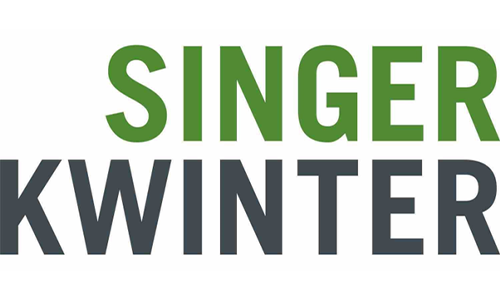“Artificial intelligence is not a substitute for human intelligence; it is a tool to amplify human creativity and ingenuity.”
– Fei-Fei Li, Co-Director of the Stanford Institute for Human-Centered Artificial Intelligence and IT Professor at the Graduate School of Business
Artificial Intelligence, better known as AI, has undeniably made significant strides in transforming various industries, and the legal field is no exception. AI has been a recent “hot topic” in the legal sector as emerging technologies are promising revolutionary change in the delivery of legal services. While it appears to be a novel topic, Canadian law firms have used several types of AI-powered legal tools for some time. If you’ve ever interacted with a chatbot, used a speech recognition app, Apple face-ID or used ChatGPT, you’ve interacted with AI.
Recent Articles
Applications of AI in Law: Efficient, Cost Effective and Accessible
“[E]ven if there is no current obligation for lawyers to use AI in the practice of law … future advances and benefits might make it irresponsible to refrain from using AI.” - Darcia Senft, General Counsel, Director of Policy and Ethics at The Law Society of Manitoba [1]
Efficiency & Quality of Service
At present, there are three main user groups of legal AI. They include lawyers, the public, and the justice system. Legal professionals and staff use AI-powered tools to handle legal research, document review, contract analysis, and predictive analytics. AI technologies in electronic discovery and contract review software have streamlined the once traditionally labour-intensive tasks for legal professionals. These software not only reduce the risk of human error but also exponentially expedites the identification of critical information, improving the overall quality of legal services.
Start-ups like Alexi, an AI technology that can “extract relevant information from a vast array of caselaw and authorities and then organize it into a concise and well-structured memo [2] or Blue J L& E, a legal prediction platform, [3] are potential game changers in the legal sphere. By automating routine processes, lawyers can redirect their focus to more complex legal analysis, leading to a higher standard of service and more informed decision-making for clients.
Affordability
Affordability has plagued the public when accessing justice in Canada. There is a growing gap between those who can afford legal support and those who qualify for legal aid. Clients and self-representatives are always search for novel ways to lower their potential costs. Law firms that effectively leverage emerging AI technologies can offer services at lower costs and potentially better client service. While the development of AI applications is further along in the US, Canada has been making some eye-opening progress that is worth mentioning.
Smartsettle ONE, an online dispute resolution service originating from British Columbia, utilizes five sophisticated algorithms that learn the bidding tactics and priorities of the parties to a dispute. This algorithm-based negotiation app helps move parties towards a settlement, which results in saving time, money, and ultimately, a settlement.[4] Smartsettle ONE has already settled a dispute between two parties and stated that the system allowed the parties to settle their dispute in less than one hour.
Spellbook is the latest star in the Canadian legal tech market. Spellbook uses GPT-4, a state-of-the-art language model developed by OpenAI that can understand and generate human-like text, advance natural language processing capabilities, and review, analyze and suggest language for your contracts and legal documents, right in Microsoft Word. Spellbook is trained on case databases, form libraries, and statutes, allowing the program to suggest accurate and relevant language for legal documents. Features of this program include ‘Missing Clause Review’, ‘Directed Draft’, ‘Find Conflicting Terms’, and ‘Missing Boilerplate’. [5]
These applications are just another step in the saga of the eventual automation of certain legal tasks and processes.
Challenges plaguing the collaboration between Law and AI
While AI holds the promise of streamlining processes, increasing efficiency in the delivery of legal services, and providing valuable insights, it is crucial to critically examine whether its integration is an unequivocal boon for the legal profession.
Over-reliance on AI-powered programs can lead to severe consequences.
In the case of Roberto Mata vs. Avianca, Mr. Mata retained the firm Levidow, Levidow, & Oberman to represent him as he sought damages for injuries suffered during an Avianca flight from El Salvador to New York in August 2019 when a metal snack and drink cart struck his knee.
On March 1, lawyers Steven Schwartz and Peter LoDuca of the firm, in their usual practice, filed a brief that opposed Avianca’s motion to dismiss the case. This brief was particularly special because it cited and quoted six fake cases invented by ChatGPT, the artificial intelligence tool by OpenAI.
Unsurprisingly, the federal judge Justice Castro, was less than impressed by their written advocacy. The judge granted Avianca’s motion to dismiss the case and issued one fine of $5,000 to be paid by the two lawyers and their firm under joint and several liability. In addition to the fine, and perhaps a more severe punishment, the lawyers were required to send letters to the six real judges who were "falsely identified as the author of the fake" rulings cited in their legal filings. [6]
On the other side of the border, Canadian courts have already started to weigh in on the usage of artificial intelligence in legal submissions. Chief Justice Suzanne Duncan from the Yukon Supreme Court and Chief Justice Glen Joyal of Manitoba’s Court of King’s Bench have already issued practice directions regarding the use of artificial intelligence (such as ChatGPT or any other artificial intelligence platform) for their legal research or submissions in any matter and in any form before the Court. Both courts’ directives include the requirement to identify and disclose the use of artificial intelligence in submissions prepared for the court. [7]
The possible legal ethics and privacy concerns of AI
While AI can unlock efficiencies for lawyers, it also raises questions of ethics and privacy that law firms should consider - especially bias and breach of confidentiality.
Privacy
AI technology is powered by machine learning algorithms, and its thirst for knowledge is insatiable. The legal industry's commitment to client confidentiality has led to hesitancy in adopting AI technologies, as law firms are cautious about uploading sensitive information and the implications of the data storage, usage, and access, especially without the client’s explicit authorization. The potential for AI to infer sensitive information raises the risk of unauthorized data dissemination. Unfortunately, current regulations regarding privacy may be significantly outdated and not aligned with technological advances.
Bias
According to Ryan Fritsch, legal counsel with the Law Commission of Ontario, AI is increasingly being used by law officials, including judges, to make decisions about their cases. In addition, administrative tribunals, like civil tribunals, are using AI to parse and triage applications to settle cases more quickly. [8] While this may help the backlog in the court system, there is a valid concern about the perpetuation of bias. Biases present in AI include the process of building the algorithmic model, bias in the sample that is used to train the algorithm, and societal biases captured and amplified by the algorithm. Historically, tools employed by the government of Canada have exhibited patterns of bias in their outcome, as the tools have used criminal history as a predictor which captures societal biases. [9] If left unchecked, these biases can lead judges and adjudicators to inadvertently endorse inaccurate or discriminatory outcomes in their decisions.
In the meantime, proper training and education are necessary in order to minimize these risks. By understanding how AI technology works when vetting, implementing, and using tools, lawyers and legal staff can use their expertise to determine how and when to use them appropriately in their practice.
Conclusion
The integration of AI into the legal profession marks a transformative era, offering unprecedented opportunities for efficiency, accuracy, and strategic decision-making. As lawyers and legal staff navigate this evolving landscape, it is essential to embrace AI as a tool that complements and enhances the practice of law. Legal professionals must approach the integration of AI with a discerning eye, advocating for responsible and ethical AI practices. Rather than viewing AI as a replacement for human judgment, the emphasis should be on collaboration, with AI serving as a valuable tool that enhances the capabilities of legal professionals. Balancing the benefits of AI with an awareness of its potential drawbacks ensures a more holistic and ethical approach to the future of the legal profession. As the legal field continues to evolve, legal practitioners must actively engage with the challenges posed by AI to shape a future where technology complements, rather than undermines, the principles and values of the legal system.
***
 Kianna Abraham discovered early on that her passion lay in helping people and advocating for their needs. After graduating from York University with a Bilingual Bachelor of Arts in psychology, Kianna obtained her LLB at the University of Leicester in England, where she graduated with First Class Honours. While in law school, Kianna developed a passion for oral advocacy. Notably, she served as the Co-Head of the Moot Court Committee and participated and won in both Canadian and English moots alike.
Kianna Abraham discovered early on that her passion lay in helping people and advocating for their needs. After graduating from York University with a Bilingual Bachelor of Arts in psychology, Kianna obtained her LLB at the University of Leicester in England, where she graduated with First Class Honours. While in law school, Kianna developed a passion for oral advocacy. Notably, she served as the Co-Head of the Moot Court Committee and participated and won in both Canadian and English moots alike.
After completing her articles at a notable mid-size personal injury firm and shortly after being called to the Ontario bar in 2022, Kianna knew that she wanted to devote her career to representing injured people and their claims. She recognizes that files are more than just that; they are our client’s lives. As this often is one of the most challenging periods of their lives, Kianna ensures that clients are treated with utmost compassion and empathy while tenaciously advocating on their behalf.
***
References
[1] “Technological Competence & Ethical Duties in the Age of Artificial Intelligence” in Jill R. Presser, Amy Salyzyn & Carla Swansburg, eds., Special Lectures 2019: Innovation, Technology and the Practice of Law (Toronto: Law Society of Ontario, 2019) 10B-1 at 10B-6.
[9] Jennifer L. Skeem & Christopher T. Lowenkamp, “Risk, Race, and Recidivism: Predictive Bias and Disparate Impact” (2016) 54:4 Criminology 680 at 680-700.





